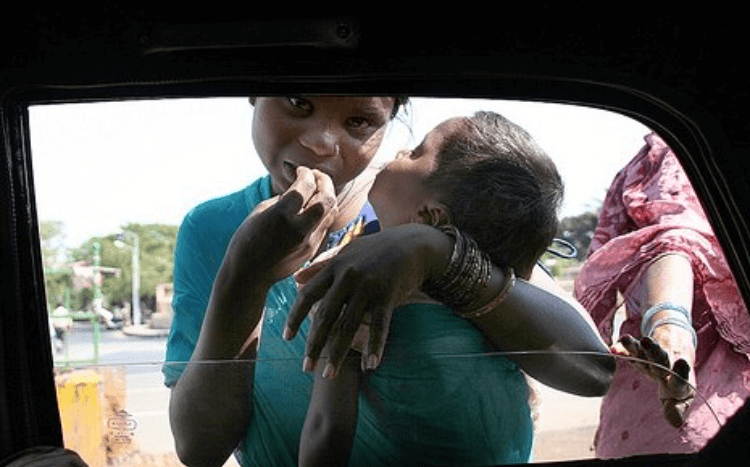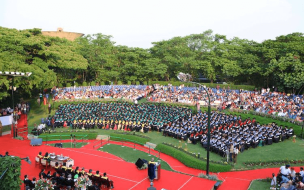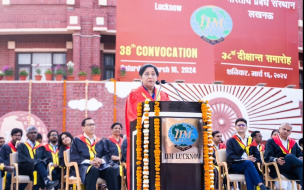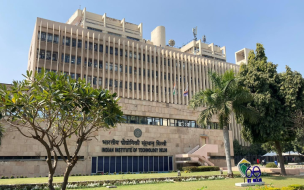Where did you go and how long was the trip?
The trip lasted one week at the end of March. We visited the city of Mumbai and had the opportunity to get to know its culture and history. Then, with eight other MBA students I traveled on to Delhi, Neemrana, Goa.
Had you ever been to India before?
This was my first time in the country. Actually, it was my first experience in a developing country.
Why did you pick India (students had a choice between visiting India and China)?
There has been much talk about the growth achieved by India and even more about the potential of the country. I’m very interested in the investment opportunities there and this trip was a great opportunity to understand how things work there and how business is done.
What were your expectations of the country before you left?
I expected a lack of infrastructure, a very poor population and most people experiencing a low quality of life. I also expected to see few public services, some homeless people, and old and poorly maintained buildings. I related it with the poor conditions I have experienced in certain parts of my own country (Greece).
I expected the wealthier people in India to be people similar to my MBA colleagues, who I regard as being middle to upper class
I expected the literacy to be low and that most people would not speak English. However I understood that I would see lot of economic activity and that multinationals would have a strong presence especially in a city like Mumbai.
Were your expectations met? What parts of the experience came as a surprise?
As I’ve never been to a developing country I believe I made a mistake by referring to European countries in conceptualising India.
In terms of infrastructure I observed a large gap between what wealthy people can enjoy and what is available to the majority of the people. Shopping malls, good airports, hotels, nightclubs and restaurants were as good as those I have experienced in Europe.
However, about 30% of the population lives below the poverty line and this was very apparent in Mumbai. There were countless homeless people, slums everywhere, and the trains and buses which the poor use on a daily basis were old and poorly maintained. The size of the gap was very large and the lack of infrastructure and poverty was far more severe than what I had experienced or could imagine.
On the academic side, I found the lectures by Indian professors to be very insightful. Some very senior business people, such as Dr. Pragnya Ram from Aditya Birla Group (a leading Indian multinational conglomerate), took the time to present aspects of their firm’s strategy. People were very open about the problems and the barriers to growth and development facing their country.
What exactly did you do during the trip?
The purpose of the trip was to understand the way that business is done in India. Every day classes were held at the SP Jain Institute of Management and Research on topics such as managing diversity in a multinational company; regulatory frameworks for conducting business; business process outsourcing; the retail sector in India and the dynamics of Indian economy.
To get a better understanding of these topics, our schedule included an extensive schedule of company visits. I had the chance to visit the TATA Consulting Group in its Business Process Optimisation department, retail stores and market traders, the slums in Dharvi to see the recycling system, and the pharmaceutical company Piramal.
I really enjoyed the alumni event organised by Lancaster. Besides building a network of Lancaster MBA alumni in India, it made me understand the value of an MBA degree in the Indian environment.
What did you do during your time off?
The few evenings that I had off I spent with my colleagues walking around the city, mainly in markets, so we could get a taste of real life in Mumbai. I was very keen to seeing places that are less touristy and would provide me with a better insight. During the second week of my trip I also visited several museums, forts and attractions.
Did you pick up any Hindi?
I had already picked up a few words from my colleagues but I must admit that I find it a difficult language, especially the pronunciation!
Was there anything not so pleasant that you encountered?
Eating was an uncomfortable experience because of the lack of food hygiene. I had to constantly be careful of the food I eat and the water I drink, as it’s possible to have something that will make you sick.
What are your tips for other students going on study trips to India?
Follow university’s guidelines regarding of where to go and how to get around. Visit as many places as you can. Be ready to challenge the way you perceive world. Keep daily notes of your experiences and reflect on them with your colleagues. This is the only way to develop a deep understanding of the experience and find its personal meaning to you.
Student Reviews
Lancaster University Management School
RECAPTHA :
98
01
27
72







